
On the morning of 14th August 2023, the China-ASEAN Digital Economy Workshop was inaugurated at the Zhejiang University Zijin Gang campus. The workshop is funded by the China-ASEAN Cooperation Fund (ACCF) and the China-ASEAN Youth Leader Scholarship (ACYLS), with matching funds provided by the People’s Government of Zhejiang Province.
54 Officials, industry professionals, and scholars from six ASEAN member countries – Brunei, Cambodia, Indonesia, Laos, Malaysia, attended the workshop. Representatives from Zhejiang University, the Department of Economy and Information Technology of Zhejiang Province, and the Financial Centre for South-South Cooperation (FCSSC) participated in the opening ceremony.
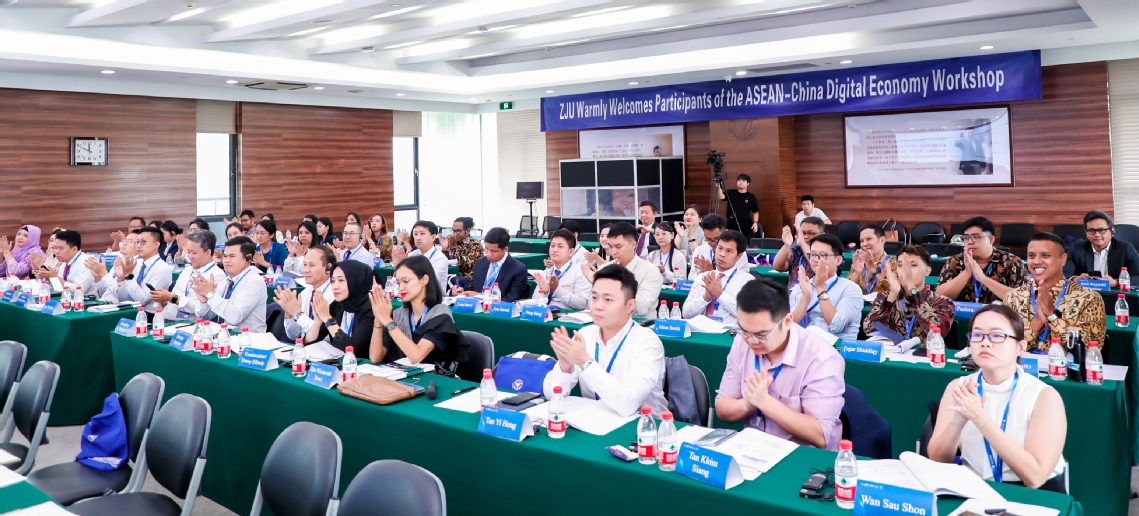
The ceremony was hosted by Dr Gong Sen, Director of the Centre for International Studies on Development and Governance Zhejiang& Zhejiang University (CiSDG). During the ceremony, speeches were delivered by He Lianzhen, Vice-President of Zhejiang University; Wu Zhong, General Manager of the FCSSC; and Li Min, Deputy Director-general of the Zhejiang Provincial Department of Economy and Information Technology.

Gong Sen explained that the China-ASEAN Digital Economy Workshop was established in response to the call of Chinese central leaders, aligning with the needs of ASEAN countries. Its objective is to strengthen central-local cooperation, cooperation between governments, industry, research and education institutions, and to facilitate exchanges and cooperation between ASEAN and China to promote mutual development, embodying the concept of a shared future for mankind in this region.

He Lianzhen emphasised that the workshop was a commitment made by national leaders at the 25th China-ASEAN (10+1) Leaders' Meeting. It seeks to leverage the advantages of Zhejiang Province as a pioneer in the digital economy and Zhejiang University to foster deeper China-ASEAN digital economy cooperation. He Lianzhen also expressed hope that this event will further enhance the long-standing friendship and collaboration between ASEAN countries and Zhejiang University.

Wu Zhong highlighted the FCSSC's longstanding involvement in digitisation and the digital economy, producing significant academic achievements. The FCSSC operates under the framework of the United Nations Sustainable Development Goals, specifically aiming to promote practical cooperation between developing countries' governments, businesses, including international development organisations and aid agencies.
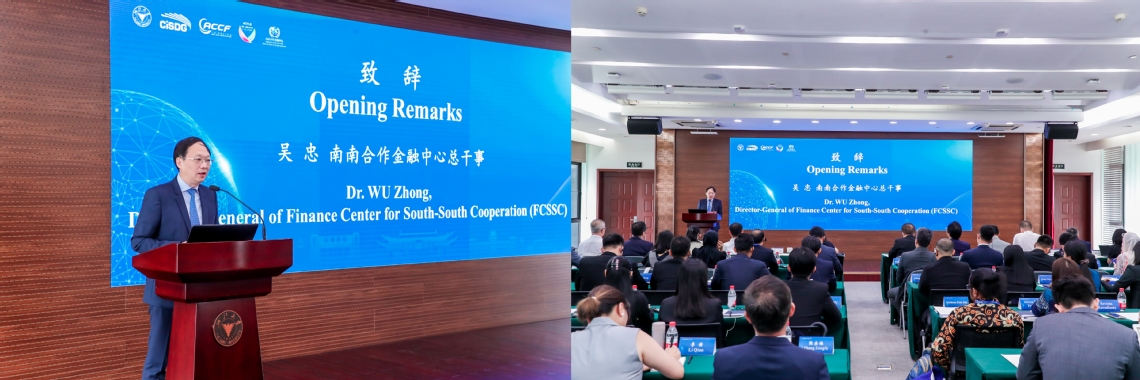
Deputy Director Li Min first introduced the development of Zhejiang's digital economy. As a province leading in digital economic development, Zhejiang began its foresighted planning for "Digital Zhejiang" back in 2003 during President Xi Jinping's tenure in the province. Li Min also shared that Zhejiang is home to globally renowned digital economy companies like Alibaba, Hikvision, NetEase, and Xinhua III.

Following the opening ceremony, Ma Shuzhong, Chief Expert of the project and a specially-appointed professor at Zhejiang University, introduced the course content. The first lecture, "Global Digital Economy Opening and Regulatory System Construction," was delivered by Professor Huang Xianhai, Vice-President of Zhejiang University.
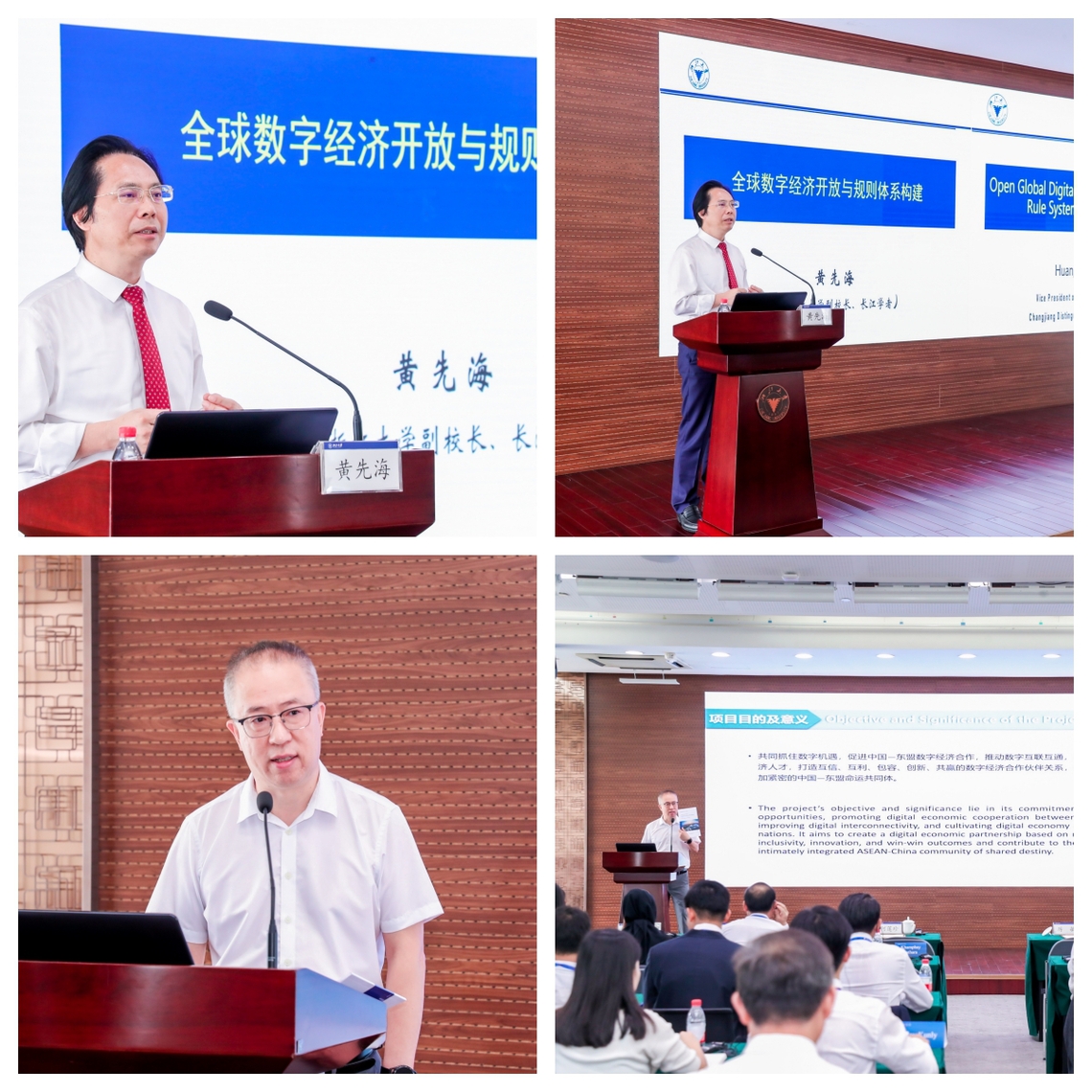
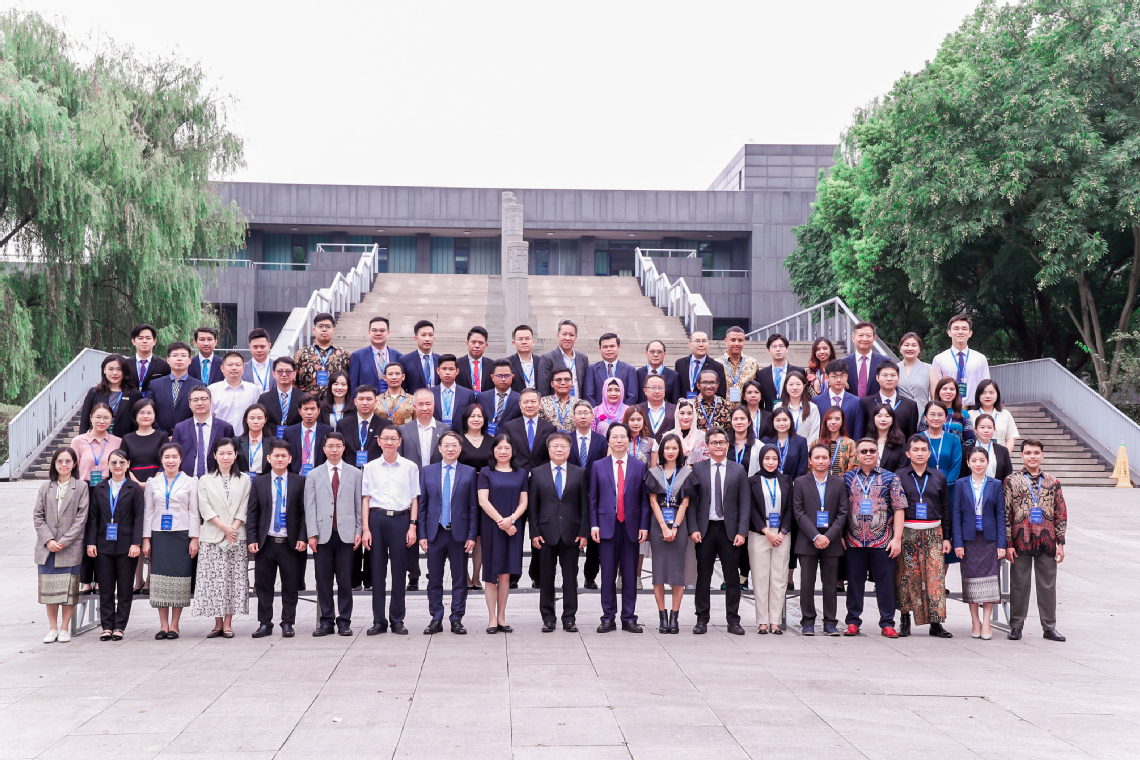
Background information for the ASEAN-China Digital Economy Workshop
Zhejiang Province stands at the forefront of China's digital economy development and is the hosting site for the World Internet Conference Wuzhen Summit. The province has cultivated numerous renowned companies, led by Alibaba Group. Furthermore, as a demonstration zone for China's "common prosperity", Zhejiang features balanced urban and rural development. Research from the World Bank suggests that the digital economy has played a positive role in revitalising rural areas and integrating urban and rural development in Zhejiang. Additionally, Zhejiang's innovations in digital governance, such as the " One-time Application" initiative, set a benchmark for the nation.
On 11th November 2022, at the 25th China-ASEAN (10+1) Leaders' Meeting in Phnom Penh, Cambodia, Li Keqiang, the then-Premier of the State Council of the People’s Republic of China, announced a commitment to train 1,000 digital talents for ASEAN countries over the next three years. The ASEAN countries was born to realise this initiative.
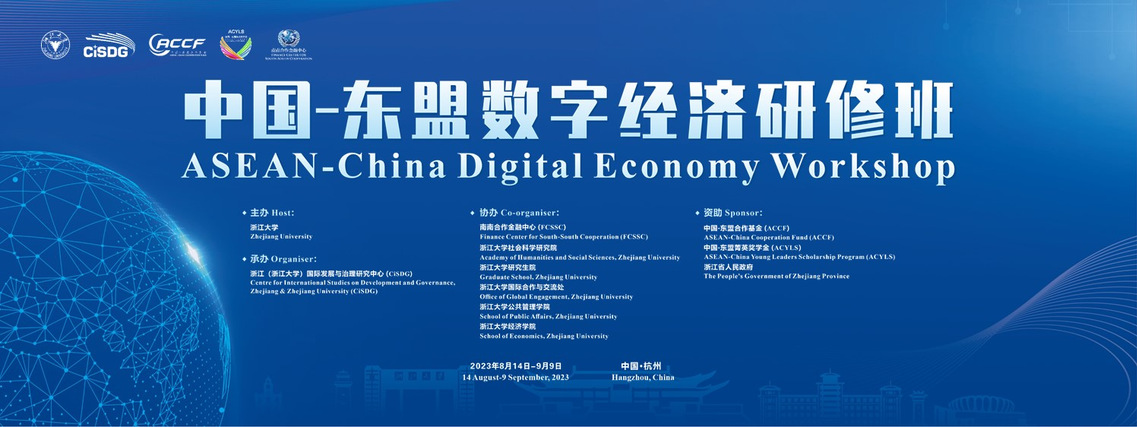
The workshop is hosted by Zhejiang University and executed by the Centre for International Studies Development and Governance (CiSDG) of Zhejiang & Zhejiang University. It's co-organised by multiple institutions and funded by the ACCF, ACYLS, and the People’s Government of Zhejiang Province.
In designing the programme, Zhejiang Province considered its alignment with the industrial foundations of ASEAN member countries. Leading companies from industries like tourism and apparel, as well as the world's largest digital economy market, Yiwu, were selected as on-site teaching bases for the programme.

The workshop aims to help ASEAN participants understand China's digital economy development status and practical experience, and promote the exchange of digital economy development experiences between countries. The curriculum covers comprehensive digital economy, digital trade, digital finance, industrial digitisation, digital governance, international digital rules cooperation.

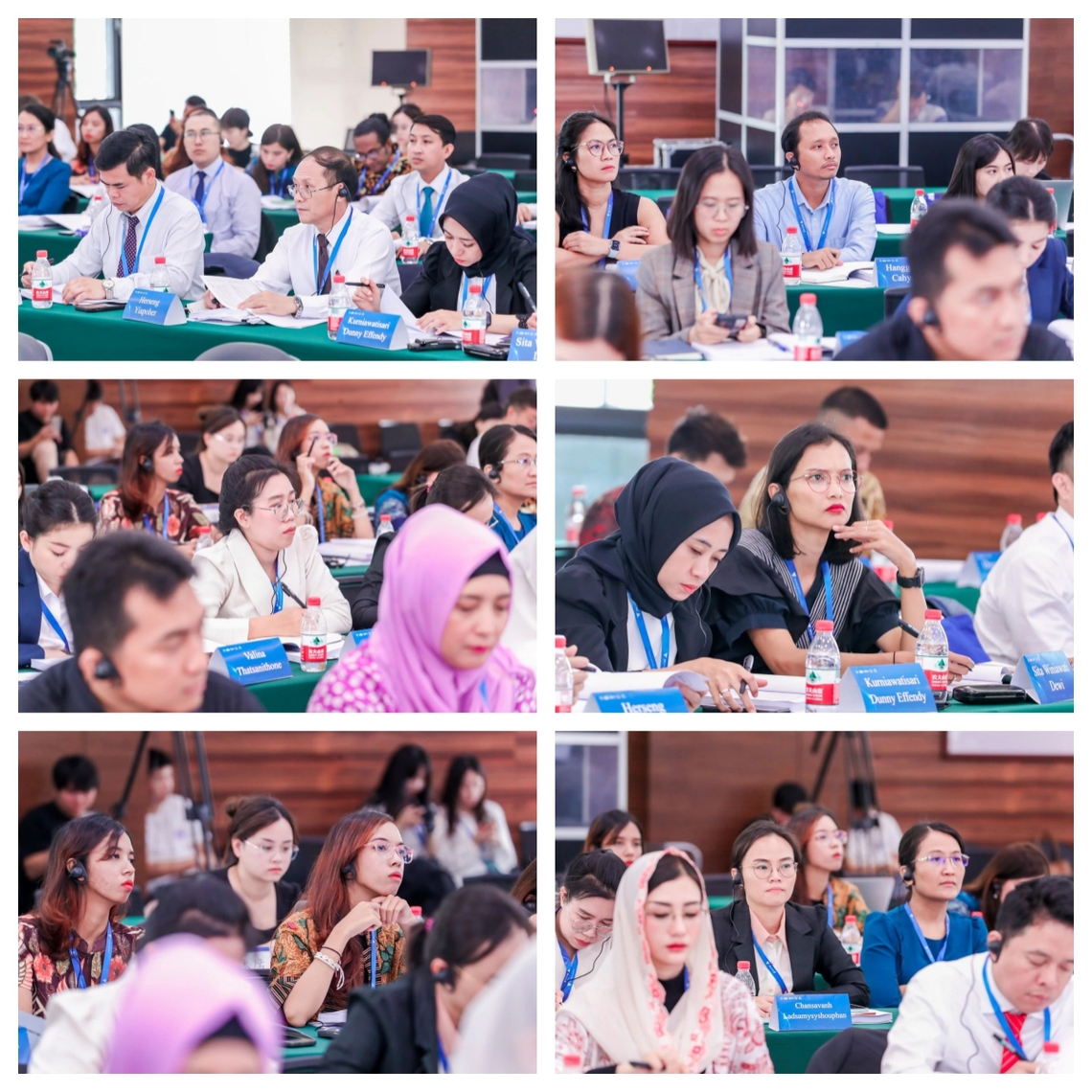
The workshop consists of 54 leading talents from ASEAN member countries' government departments, the industrial sector, and the academic community. The participants come from countries including Indonesia, Cambodia, Laos, Malaysia, Myanmar, and Brunei. Among them, 30 participants are from government institutions of ASEAN member countries, with 7 at the director-general level and 11 at the departmental level. 16 participants come from the industrial sector, of which 12 are company founders or senior management. 8 participants are from the academic community.

The China-ASEAN Digital Economy Development Exchange and Cooperation Project plans to organise a total of 9 training sessions over the next three years. The program will set up country-specific classes tailored to specific nations and specialized training classes for various sectors, including government, industry, academia, and research. Beyond the training class project, the plan also intends to establish a China-ASEAN Digital Economy Visiting Scholar Program and a Master's Degree Education Program in the Zhejiang University.
